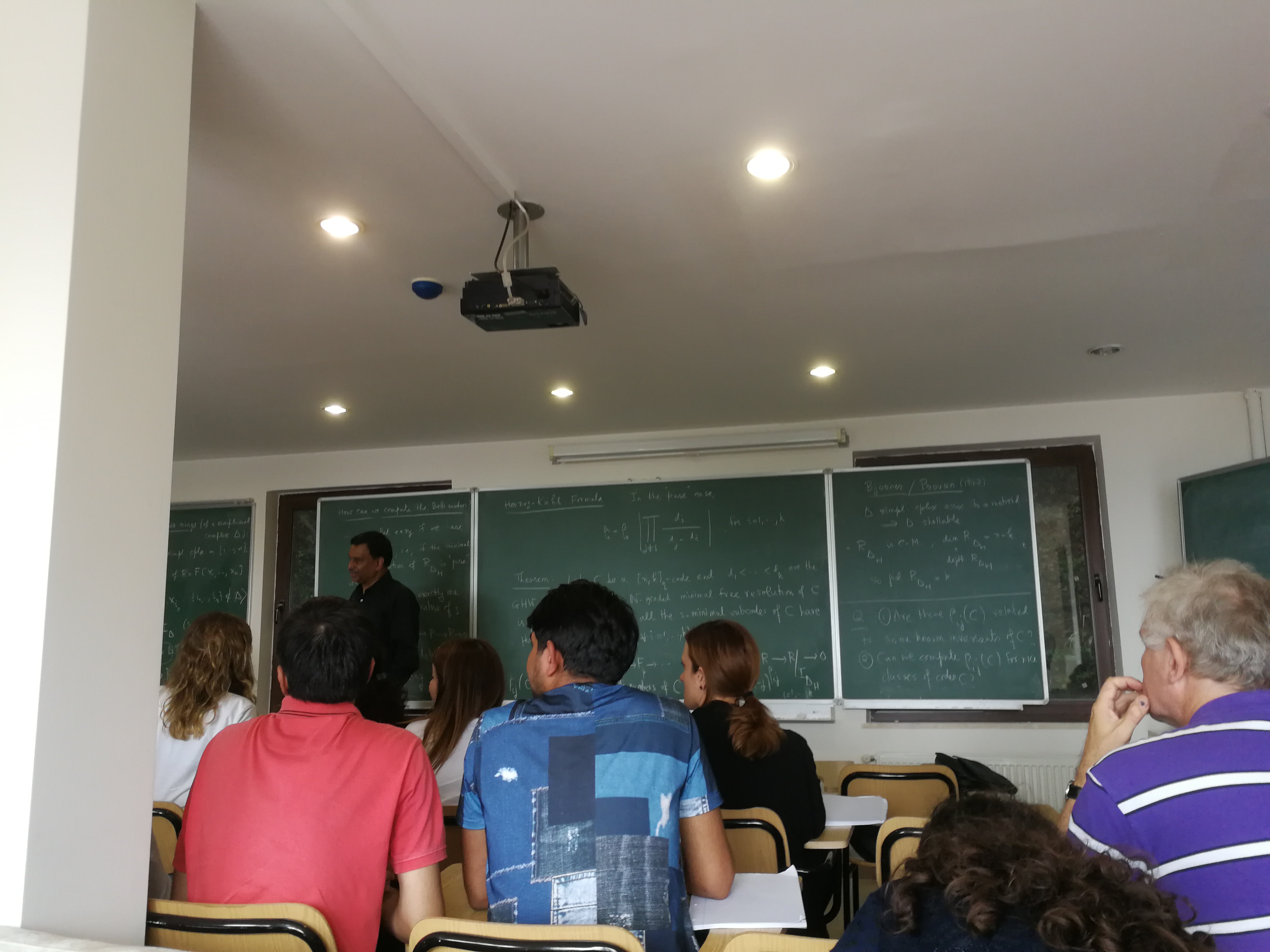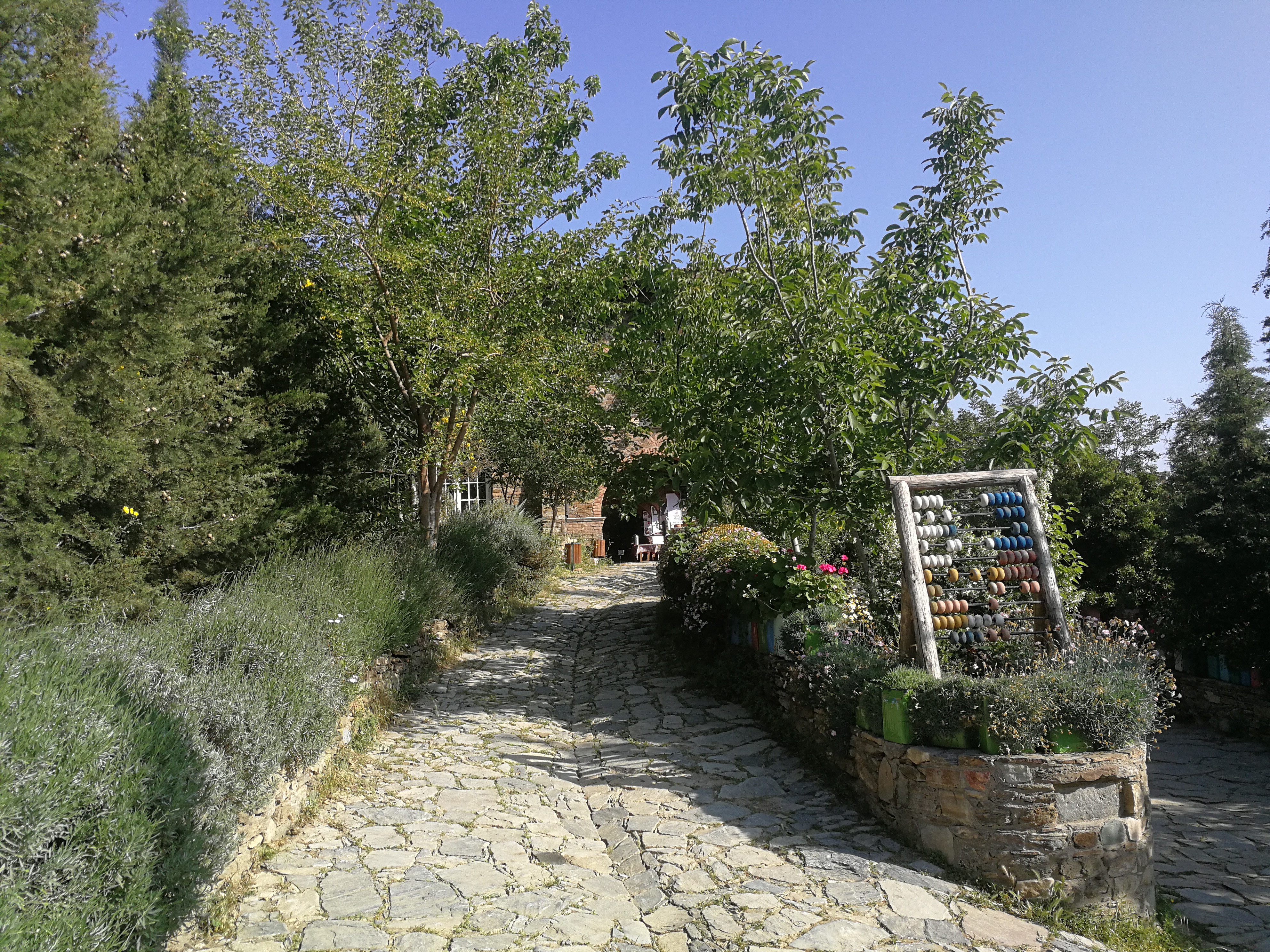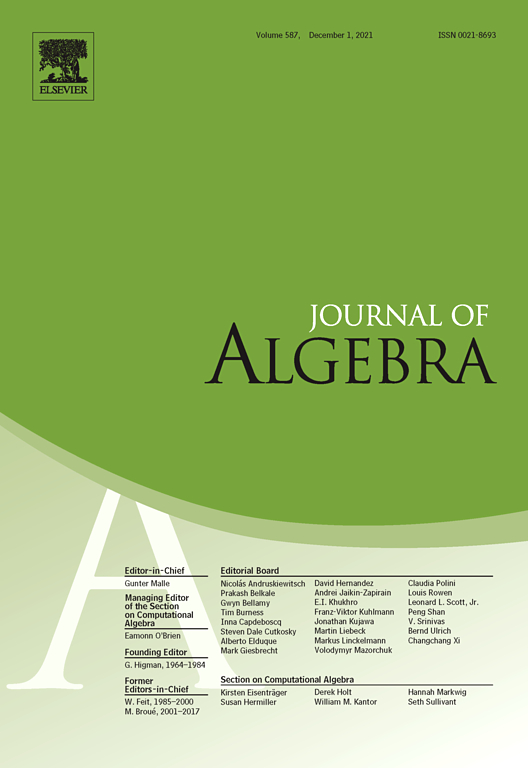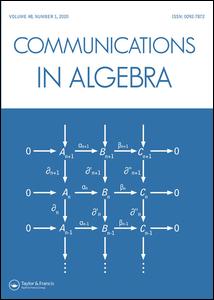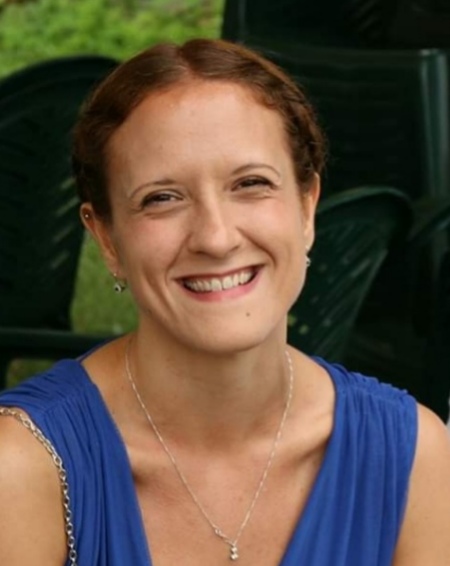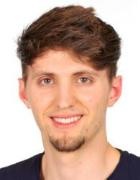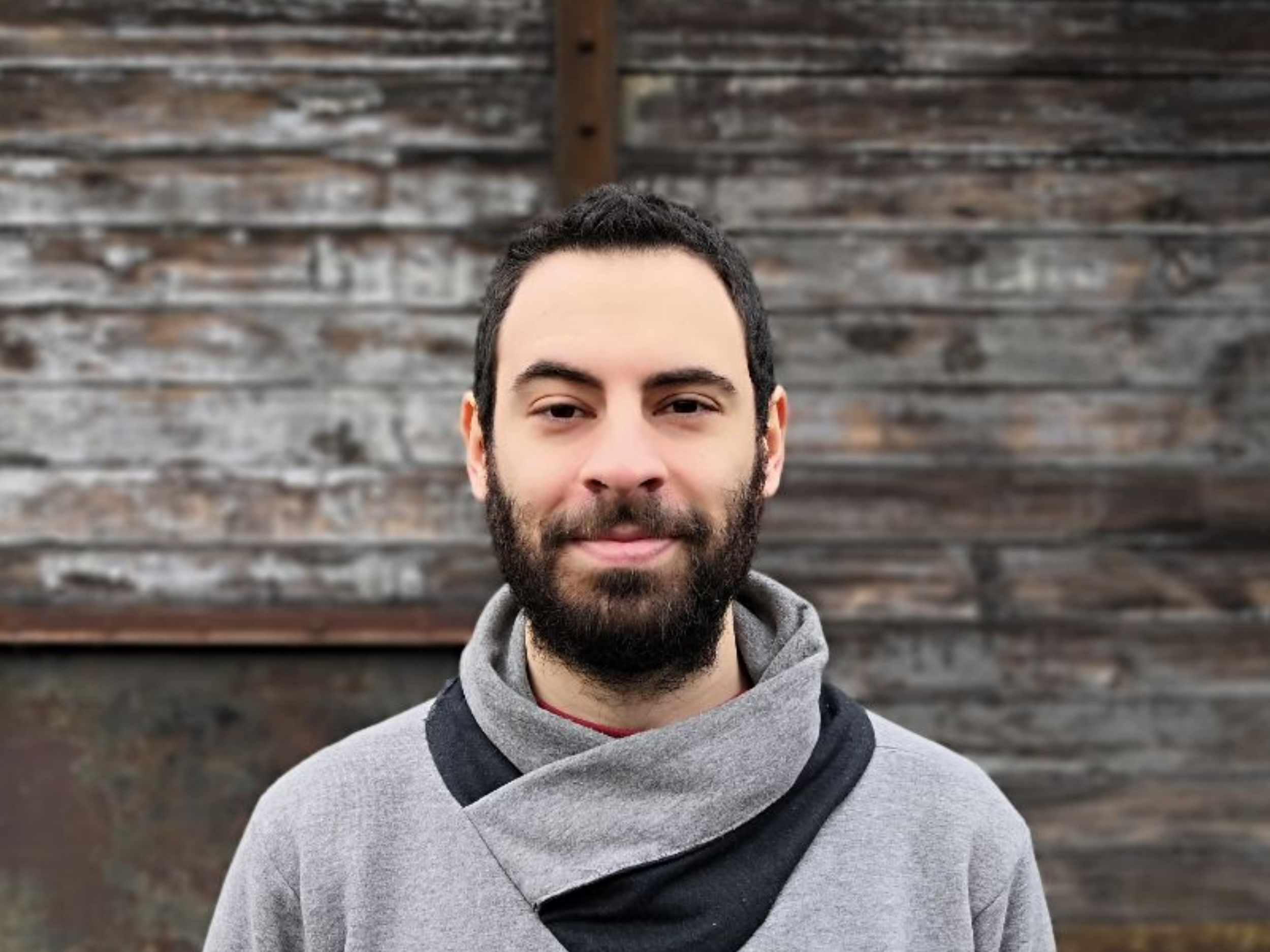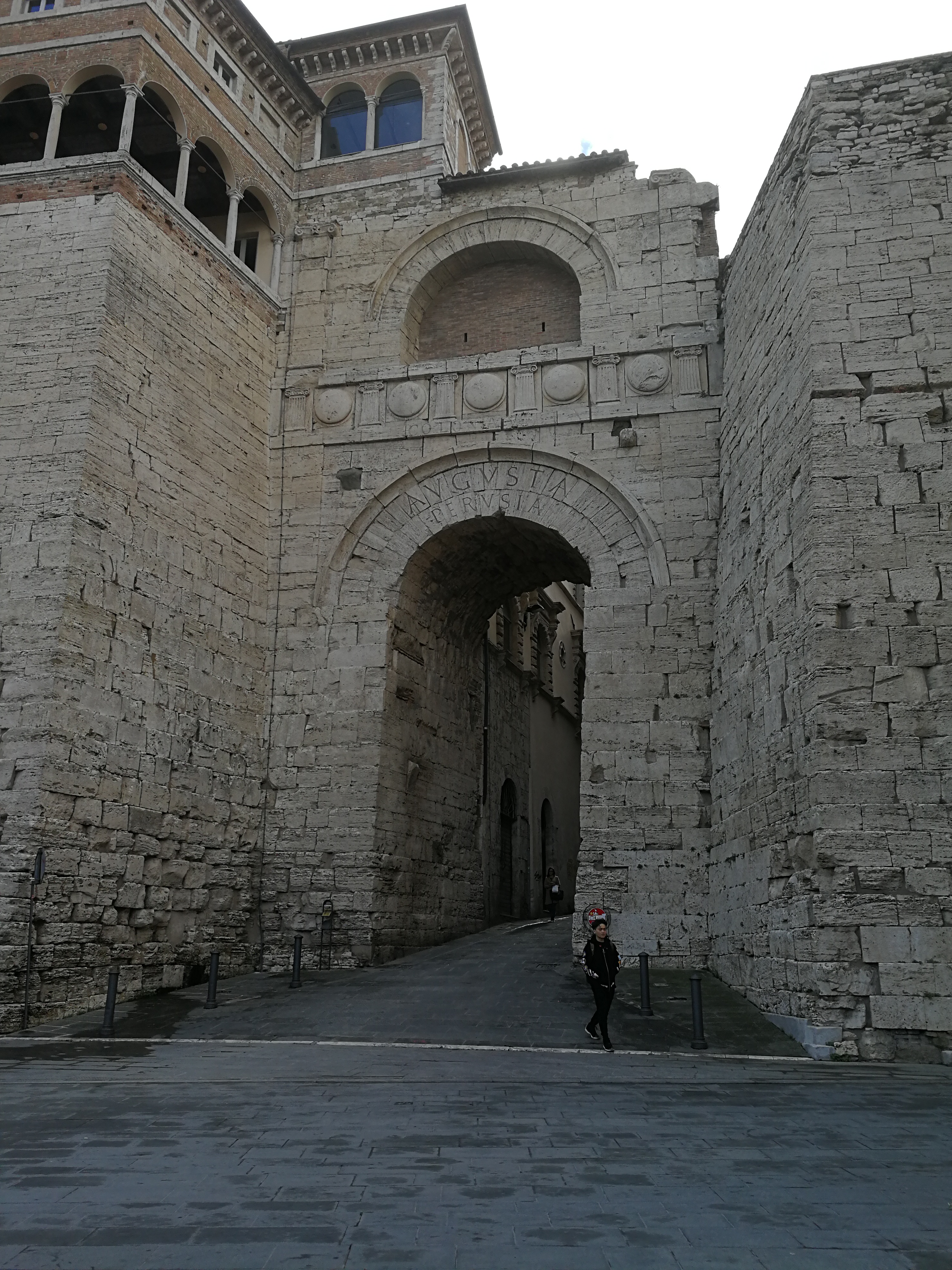23 May
2019
On the 20-22 May, a workshop organized by Nurdagül Anbar, Alp Bassa, Peter Beelen and Sudhir Ghorpade took place at Bogazici University and Sabanci University, Istanbul, Turkey. The topic of the workshop was polynomials and curves over finite fields. From the algebra group, apart from Peter, Maria Montanucci and Prasant Singh participated .
20 May
2019
Peter Beelen and Maria Montanucci from the algebra group have visited the Antalya Algebra Days, which this year took place in the Nesin mathematical village in Turkey from the 15th till the 19th of May. Peter gave a talk about his recent research on generalized Hamming weights of Reed-Muller like codes, some of which the carried out together with former postdoc Mrinmoy Datta.
15 May
2019
Maria’s joint work with Pietro Speziali “Large automorphism groups of ordinary curves in characteristic 2” has been accepted for publication in Journal of Algebra. There sharp upper bound for the size of automorphism groups of ordinary curves in characteristic 2 are provided. A similar answer is given simultaneously in another joint paper of Maria with her former PhD supervisor Gabor Korchmaros in odd characteristic.
14 Apr
2019
Maria, Giovanni Zini and Francesca Dalla Volta published their joint paper “On the classification problem for the genera of quotients of the Hermitian curve” in Communications in Algebra. There some open problems regarding the complete classification of genera of quotients of the Hermitian curve are listed and solved. A preprint is available here.
1 Apr
2019
On the 1st of April 2019, Maria Montanucci joined the algebra group in the section for mathematics at DTU Compute as assistant professor. We all wish her welcome!
Maria studied mathematics at the Universitá degli Studi di Perugia in Italy, obtaining her bachelor’s degree cum laude in 2013 and her master’s degree cum laude in 2015. From 2015-2018, she did her PhD under the supervision of Prof. G. Korchmáros at the Università della Basilicata, Italy. After this she was a postdoc at the University of Padua from November 2018 – February 2019, where she worked with Prof. Corrado Zanella.
7 Mar
2019
Today, Peter gave the inaugural lecture for a conference celebrating the influence of Ruud Pellikaan in mathematics on the occasion of his retirement. Ruud Pellikaan was Peter’s PhD supervisor and it was a great pleasure for him to give an overview of Pellikaan’s contributions to mathematics. We wish Ruud a happy retirement!
1 Mar
2019
Prof. Trygve Johnsen from The Arctic University of Norway will visit the algebra group in the section for mathematics at DTU Compute in the coming three months. He is currently on a sabbatical and fortunately for us, he chose DTU as one of the universities he would like to visit. During his stay, he will primarily work with Peter Beelen and Prasant Singh on Grassmann and Schubert codes.
5 Feb
2019
The Algebra group was visited late January 2019 by Sven Puchinger who is a postdoc at TU München. Sven has visited us before, and is also a former colleague of Johan at Ulm University in 2013-2014. Sven has numerous research papers jointly written with Johan and Peter.
During the visit, we mostly discussed Twisted Reed-Solomon codes: these are optimal codes (MDS) which are constructed by slightly “twisting” a Reed-Solomon code by carefully adding a monomial to the evaluation polynomials. We proposed the codes in an ISIT paper in 2017, and in 2018 we derived more properties and proposed them for quantum-computer-resilient cryptography. After Sven’s visit, we now have new observations which we will write down in an upcoming paper.
Sven also gave a very nice talk entitled “On Decoding and Applications of Interleaved Gabidulin Codes”.
2 Jan
2019
Our new PhD student Leonardo Landi started 1st January 2019! Leonardo holds a Master’s degree from the University of Parma, Italy. His PhD project has the tentative title “Curves and Error-Correction”: the aim is to get a better insight in the structure of algebraic geometry codes constructed using towers of function fields.
9 Nov
2018
From October 27 til November 1, Peter Beelen visited Prof. Massimo Giulietti and his team at the Università degli Studi di Perugia in Italy. During the visit he finished an article with Maria Montanucci, who visited DTU as a guest PhD in 2017. Directly after the visit, Maria started as a postdoctoral researcher at the University of Padua.
In the joint article certain subfields are described of the new maximal function fields found by Maria and Peter in 2017. Such subfields are of interest, since by a result of Serre, they are maximal as well. The article has been submitted to the journal Finite Fields and Their Applications. A preprint is available here.
